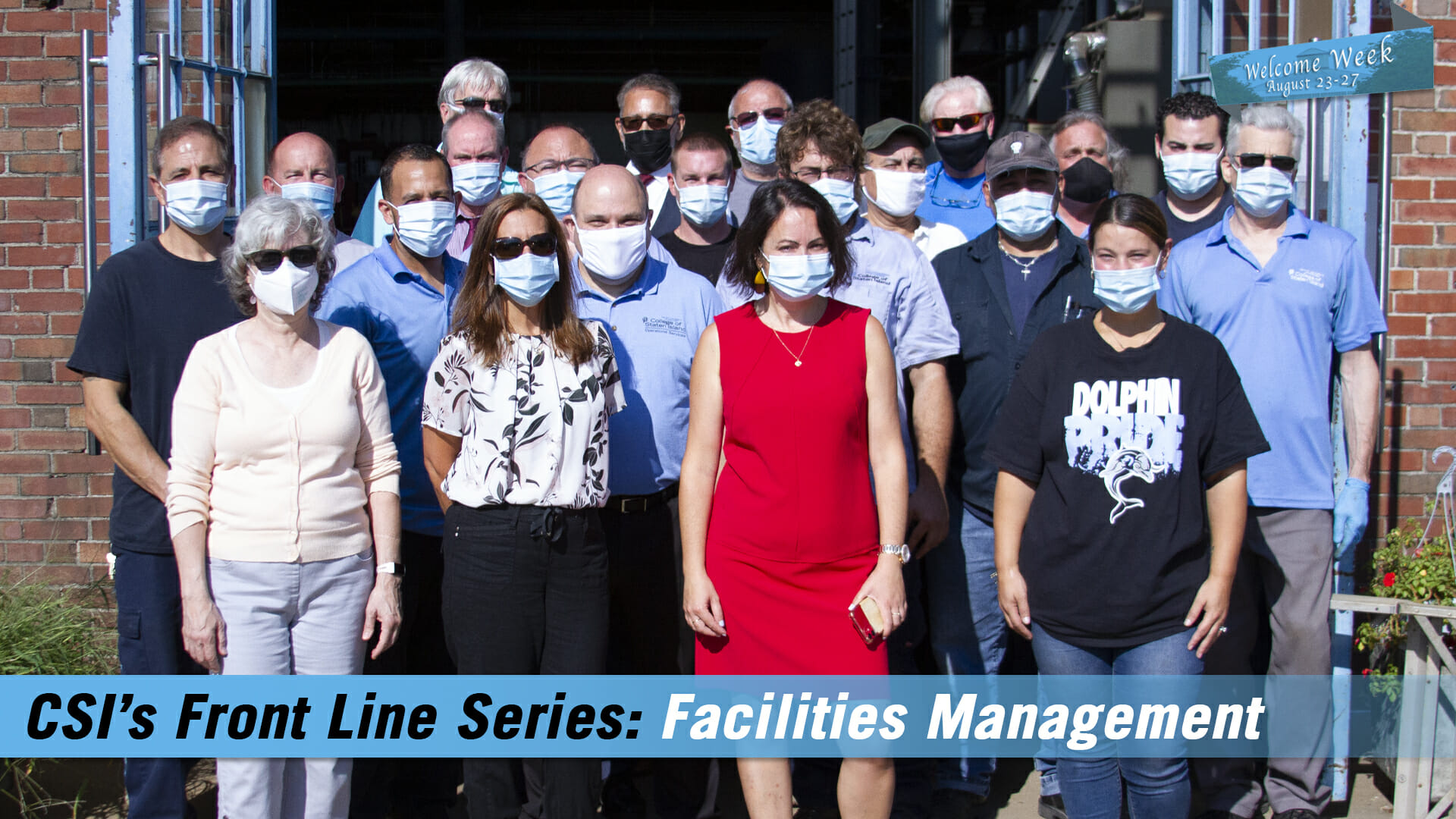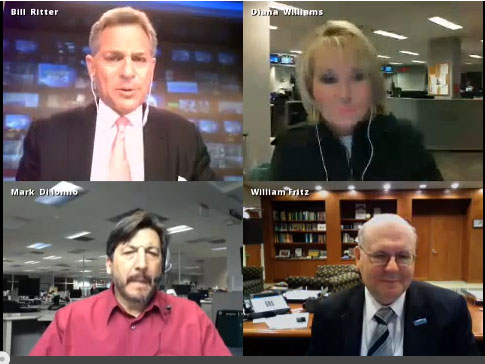This is the sixth in a series of articles in CSI Today that will examine the professional effects of the COVID-19 pandemic on the College’s Front Line Workers, and their determined efforts to ensure the safety of our campus. [OFFICE NAME] is under the supervision of Hope Berte, Vice President for Campus Planning, Facilities, and Operations. VP Berte commented that “There are many staff in the division who should be recognized for their outstanding commitment and dedication during these unprecedented circumstances. All have worked under the direct guidance of each of the managers who are spotlighted in this series.”
Prior to COVID-19, you’d see the staff who work for Keith Pisons, Chief Administrative Superintendent, all over campus—custodians who keep the campus clean; laborers and grounds staff who keep it functioning and looking presentable by mowing, trimming, removing refuse and recycling, and even setting up for events; plumbers who oversee installation and repairs of all plumbing and piping systems throughout the College, including fire sprinklers, drainage and irrigation systems, and CSI’s forced sewage pumping station; and Central Plant staff who control the College’s heating, ventilation, and AC system, fire safety systems, and various mechanical systems that support research, emergency power systems, and fuel storage. All of this amounts to a monumental task on a good day.
As with other offices on campus that are critical to the smooth running of the campus, the Facilities Management had to make a lot of changes during the pandemic, not only to keep the campus operating, but to ensure the safety of those who were physically there. To get better grasp of the changes involved, CSI Today spoke with Joseph Nasella (Administrative Superintendent for Custodial Services), Frank Salzillo (Senior Stationary Engineer in Facilities at the College in charge of the Central Plant/HVAC), John Mahoney (Administrative Superintendent of Buildings and Grounds in charge of Laborers and Fleet Mechanics), and John Santorelli (Plumbing Supervisor).
So, how has the pandemic affected the Facilities Management? Nasella noted that his staff had the additional duties of disinfecting all surfaces throughout campus, including Dolphin Cove, which was once being eyed as a possible medical facility. He added, “As in-person classes resumed, it is necessary to constantly clean and disinfect all occupied spaces. Close attention had to be paid to all high-touch areas.”
Mahoney commented that “All of the interaction that the laborers had with staff and students abruptly ended with the start of the pandemic. We now dedicate our time to maintaining the grounds and many tasks are scaled-back. Several in-person classes were held on campus and the Laborers thinned out classrooms and seating was spaced according to CUNY guidance.”
Central Plant staff continued to work to ensure a safe and comfortable campus. Salzillo reported that “I am proud to say that my staff were here every minute of every day throughout the pandemic including nights, weekends, holidays etc., as we always have been. What did change is how we are alerted to problems on the campus. It quickly became obvious how much we rely on campus occupants to alert us to minor problems before they become large problems. Thankfully, we had Public Safety, Vivarium staff, and Operational Services staff onsite through the campus’s most desolate days to help us in so many ways.”
Santorelli recalled that although the administration did their best to keep his staff adequately supplied, pandemic-induced shortages of materials for repairs and alterations often made things challenging. He added that “During these times, circumstances and guidelines seem to change on a daily basis. So keeping up with the changes has been challenging and keeps our work load always growing.”
Now that the campus is slowly reopening to more students faculty and staff, these dedicated staff members are continuing to clean and disinfect, install hands-free faucets and ensure the availability of hot water for proper hand-washing, prepare the grounds, and ensure that the HVAC systems are up to recommended safety standards.
With all of these people working on the front lines during a difficult and dangerous time, the common denominator was a sense of pride and teamwork.
Nasella commented that “The pandemic has been very challenging, especially in the early stages of the unknown. Together the custodians and I have taken this situation very seriously. We are proud of mitigating the spread of the virus.”
“We all are proud to be part of the campus community and hope all students return safely to campus,” Mahoney stated.
For his part, Salzillo noted that “I am incredibly proud to lead the group that is so tirelessly and skillfully working to keep the campus safe in so many critical ways and I am glad to have such a great group of tradesmen, laborers, and custodians to work alongside us in ensuring that the campus is and remains safe. This group is up to the task at hand and I would not want to have any other role in this.”
”Santorelli added, “These are times that we’ve never seen before. There was no dress rehearsal. It feels good to do what we can as a “TEAM.”
By Terry Mares
















